Supporting LGBTQIA+ Inclusion in Roofing - PODCAST TRANSCRIPT
June 10, 2025 at 2:00 p.m.Editor's note: The following is the transcript of a live interview with a panel of experts. You can read the interview below, listen to the podcast or watch the recording.
Intro: Everyone, welcome to Coffee Conversations. My name is Megan Ellsworth and I'll be your host today and I'm really excited because this is a topic that's very near and dear to my heart as a queer person in this wonderful industry that we're all in. And today's topic is Celebrating Pride Month: Supporting LGBTQIA+ Inclusion in Roofing and it's brought to you today by Tremco WTI and we just really thank you, Tremco, thank you, WTI for supporting initiatives like this and being such a warm, welcoming company that wants to just be inclusive and support everyone that you can. So thank you. Tremco WTI has always been a big advocate for LGBTQ people in their company and that's just super heartwarming to see. So yay.
The chat is open. Heidi and Karen are already in there and let's get started. So Josh, oh, sorry, Kristin, you're first, could you just introduce yourself and tell everyone out there just a little bit about you?
Kristin Crandall: Sure. My name is Kristin. I work for Tremco and WTI. I've been with them for about eight years, a little over eight years in February. I'm the Northeast Regional Dispatcher as well as the Fleet Administrator. I enjoy this company very much and I like to play softball on my down time.
Megan Ellsworth: Love it, love it. Josh, please introduce yourself, friend.
Josh Adams: Hello, everyone, hello, chat, thanks for having me. Yeah, my name's Josh Adams. I'm a longtime roofing kid and then eventual contractor and now I'm in the software space and wanted to be on the pod and share in Pride Month and support inclusion in the roofing space. So thanks for having me.
Megan Ellsworth: Yes. All right. And last but certainly not least is Janette. Hi. Can you please introduce yourself?
Janette O'Shaugnessy: Yeah. Hi, it's Janette O'Shaughnessy here. I am the founder of Resonating Brands. We are a digital marketing agency that is focused very specifically on roofing, so we only take roofing clients. Our goal is to help them become marketing leaders. My history is a long career in marketing and I've learned how to focus all of my expertise in just roofing. So thanks so much for having me. I appreciate the opportunity.
Megan Ellsworth: Absolutely. I'm so glad that you're here. So let's get started. I just have some fun little graphics that I put together for this conversation, but let's dive in. Could each of you give us a little bit of your journey in roofing and tell us why it's so important for roofing companies to support LGBTQIA employees, especially during Pride Month, but also year round? Kristin, do you want to start this one off?
Kristin Crandall: Sure. So I got into roofing, like I said, about eight years ago when I wasn't actually looking, really looking for a job and it fell onto my lap and it's probably the greatest thing to ever fall on my lap to be honest. And I've really enjoyed the experience. I've always been a very customer-based person and just making those connections, which completely go into Pride and everything and falling into that, which I honestly came into the Pride not that long ago, about two years ago. So I am very new to this wonderful community of people and it has been a blessing and it just shows that support in the companies and support around people can really make you develop into an amazing person and grow and really be able to test your boundaries of what you can do when you think you're very limited.
So having the backing of a company, especially a roofing company, which maybe many people don't look at as a very inclusive company or type of work, is pretty amazing and very... What's a good word? I can't really describe it. It's just really nice to have that inclusivity regardless of it's Pride Month or it's throughout the year. Knowing that your company backs every aspect of you is just really an amazing feeling.
Megan Ellsworth: That's such a good point. I love the way you said that your company backs every part of you. What a great feeling that is.
Jeannette, could you tell us a little bit of how you got into roofing and maybe some of your journey being a part of the LGBTQ community in roofing?
Janette O'Shaugnessy: Sure, sure. Yeah, so I've had a pretty long career in B2B marketing and in 2020, I find myself working with a wonderful residential roofing company up here in Michigan where I'm from. And I found the entire environment at this particular company warm and welcoming and inclusive and they didn't really care whether you're pink, purple, gay, straight, whatever, it was more about just being inclusive and trying to help everybody feel welcome and safe.
So after I'm at that company and started working with them, I actually started specializing in roofing. And now I have a lot of roofing clients and I'm just finding that the community is warm and welcoming and we all need to be inclusive, whether it doesn't matter if it's about being gay or straight, it's more about just loving everybody for who they are and trying to make everybody feel welcome and safe. And when people do feel welcome and safe, they're going to put forward their best effort in no matter what they do. So that was my journey into roofing and I love the community.
Megan Ellsworth: Yeah, what a great point. When people feel welcome and included and safe, they're going to do the best work, they're going to be able to do the best work.
So Josh, anything to add on why it is so important for roofing companies to support LGBTQIA employees year round and during Pride Month?
Josh Adams: Yeah, I think any good business is going to put an emphasis on finding the best talent. And talent is in all groups, oftentimes even a higher concentration in marginalized groups. So I think it's important to, as a good business, to develop talent with the best people that you can find. And that journey is a lot easier if you are not exclusive to specific groups. And I think finding the best person for the job can be from any community and I think that needs to be the focus is seeing people on merit and not labels.
Megan Ellsworth: Yeah, yes, ugh, across the board. Absolutely, not labels, not skin tone, not sexual orientation. Absolutely, I love that. So going into that, how can a co-worker be an ally and support a queer co-worker in a work setting if they're facing some challenges? How would you support someone through that?
Josh Adams: Is that back to the panel?
Megan Ellsworth: Oh, sure, to the whole panel, but whoever wants to go first. Kristin?
Kristin Crandall: I would say just making it a point to show empathy, show grace and make it a safe space for someone to be open in the first place. And then once you are open, showing them that you support them regardless of which community they're part of, it doesn't change who they are on the inside of a person. So just knowing that it's a safe space for people to be who they are and then supporting them through that and standing up and showing up for them in time of need is just an amazing thing.
Janette O'Shaugnessy: Yeah, I agree with that totally, Kristin.
Megan Ellsworth: Absolutely.
Janette O'Shaugnessy: Allies I think play a big role because they normalize and validate marginalized or LGBTQ+ community members. So if you have an ally who isn't, who's more straight so to speak, they normalize and they can also call people out and validate that being supposedly different isn't so different and we're all just humans, we're all humans doing the best we can. So I think allies play a huge role for us in normalizing and validating that it's okay.
Megan Ellsworth: Yeah, absolutely. Josh, anything to add on allyship?
Josh Adams: Yeah, that's a huge important... I mean, I come from, I guess, a younger generation, so it's a lot less cool in my age group to marginalize or make anyone feel not a part of society or have importance. But yeah, it's interesting to reflect and like we were talking, Janette, your journey in the early-'90s compared to the 2010s and now into the 2020s.
So I think just having, like you said, if there's, whether it's called straight presenting or whatever it is, I think allyship is super important. And I think marginalized groups usually want to feel louder or claim more space because they don't feel heard. So I think a really important way to bring people in and have a sense of community. No one's asking to have a dedicated, I guess, a dedicated praise. It's mostly just everyone wants to feel part of the group.
It goes back to high school of sitting in lunch and feeling excluded at a lunch table. I think those people tend to search and want to have that validation. And after years and years and years of not getting that, it feels suffocating. So I think a good way to support that and bring awareness is just having better friends, having people that support your community, whether you're a minor or LGBTQ or a makeup artist, whatever it is, I think just a general rule is if somebody's your friend, you should support them irregardless of what their makeup. If you enjoy their time, you should show them love.
Megan Ellsworth: Yeah, yes, yeah. And going back to the initial point too of stepping out and stepping up for people. If you see something, say something. Supporting a friend, a coworker is so important really now more than ever. If they're seeing any sort of backlash or what have you, misunderstandings and using the right pronouns, making an effort to use... if someone changes their name, if someone changes their pronouns, just make an effort. You don't have to be perfect. No one's perfect, but that's all about what allyship is is just making an effort and putting yourself out there just like anyone else is doing. So I would-
Josh Adams: And if 2 out of 10 people didn't even... This will be a hot take, but it's absolutely accurate and true. If even 2 or 3 out of 10 people weren't even allies or weren't even contributing to positivity but just weren't contributing to hate, that would be a huge impact. So even if somebody's not wanting to actually contribute or be positive, you can at least just not show hate.
So it's like because somebody... if you're especially in the time of social media, if you're contributing to a hateful comment thread or whatever it is, you're going to probably get the eyes of 100 people seeing a comment, which is then going to validate and not even validate, that might allow someone else who was maybe looking for guidance on how to act and that's going to push them to the side of not great.
So even if you don't understand. And just a good common practice that everyone should abide by is just don't go out of your way to show hate. What does that possibly do and contribute to your own life? That can't feel good harboring hate.
So good practice with social media, if you don't understand something, just don't comment. If you're going past an article and you're going through comments, don't support hate. That's just a very common universal language, love is always better than hate in all things.
Megan Ellsworth: Yeah, yeah. And I think that's the overarching theme of Pride Month.
Josh Adams: Correct.
Megan Ellsworth: Which we hope to bring to everyone here today.
Okay, during our practice last week, I think it was Josh, someone brought up a really fun idea to have each member here talk about what was the first time they remember seeing a big roofing company supporting Pride in the LGBTQ community. And so I love this question. I'd love, Janette, for you to go first if you're ready for it. I'm going to put you in the hot seat.
Janette O'Shaugnessy: Yeah, I love the hot seat. Let's do it. One of my clients is an old school old white guy, using that scary term, not trying to be derogatory towards anybody, but that stereotype of we are rigid, we don't like anything that's different. And in working with this particular company and working on just general inclusivity, they have had a complete turnaround and they now promote inclusivity and they support their team members who are gay, whatever term you use in today's world of GLBTQ+++, whether you're Hispanic or anything.
So seeing them go from having this complete culture of, "Hey, we're the old white guys and that's how we are," to saying, "Wait, we need to really think about what that means and what we're projecting to our team and our subcontractors." And then all the way down to, "We're going to do an about-face and talk about how inclusive we are," it's just been completely energizing for me and for their team. So they've done this complete about-face, which I think is awesome.
Megan Ellsworth: That is so inspiring to hear. And I urge the audience out there to put in your comments too, when was the first time you remember seeing a big roofing company, whether that's, like Janette said, a contractor or a manufacturer, distributor supporting Pride Month in the LGBTQ community? So I love that, Janette and how exciting that must have been to witness that firsthand.
Janette O'Shaugnessy: Well, it's like, yeah, Megan, it's like challenging them to say, "Hey, you say that you're this really great," and I'm going to use quotes here, "'Christian' team founded in some of your basic religious tenets of love and acceptance and how are you manifesting that with your team and with the community?" And they weren't. So I was able to challenge them and say, "Look, that's not very Christian." I'm not trying to be offensive to anybody here, "That's not very Christian. So how can you show more of the teachings of Christianity in your company?" And I challenged them that way and luckily I was in a space where they could accept it because when [inaudible 00:17:05] somebody, they may not be able to accept it, but they have done an incredible turnaround after they've done some deep thinking themselves.
Megan Ellsworth: Yeah, absolutely. I love that.
Oh, good. We have some comments coming in. Jamie said, Sean William supports the Pride parade in Cleveland. That's awesome.
Janette O'Shaugnessy: Whoo-hoo.
Megan Ellsworth: Whoo-hoo. Kristin and Josh, do you have a moment where you first remember seeing a big roofing company support Pride Month and their LGBTQ employees?
Josh Adams: Yeah, I think the big shocking ones were probably the big top manufacturers and distributors. I remember seeing that and thought, "Man, this world has frozen over." I couldn't believe that there was that kind of national support. And a lot of it, to me I think, came from, like what you were talking about, Janette, in why did things come around from early-'90s and then into the later years as far as mass adoption. And a lot of it comes from Twitter, Facebook and the people hearing their voices on a mass scale and companies getting dragged for not being inclusive. And I think that really brought a powerful voice from whether it was Target, I think was one of the first ones I remember that really got attacked on social media. So I think that kind of forced companies into being inclusive and supporting and then with that support on socials and the likes and sort of that social currency, that made it be more of a thing, which is great.
But yeah, it's interesting. And then you contrast all the way to today, which feels a lot more caustic and hateful than it has been in recent years, but I think things ebb and flow and hopefully everyone stays the same, continues to show love and support and it'll kind of teeter back down. I think the whole country's just at a really... more and more today, even with the riots and everything that's happening, every time I open social media, it just looks like a war zone. So it's a weird time to be in any group, let alone the LGBTQ community.
Megan Ellsworth: Yeah, yeah, absolutely. Kristin?
Kristin Crandall: Well, I'm still kind of new to the roofing world because I'm only been here for eight years and the previous jobs I had, I would say they always claimed inclusivity, they always claimed that they are welcoming of everybody, but until actually working at Tremco and WTI and I don't mean to keep putting them on a pedestal, but until working for them...
Megan Ellsworth: But they're great, so do it.
Kristin Crandall: ... once working for them, I actually really got to see what a company is like that is very inclusive and very accepting of every single person, every single type, every single orientation. And it's just crazy how much that changes your day-to-day stuff at such a minimal thing, how it can just make it so much easier to work every day.
I mean, my company is so inclusive that I literally was so comfortable coming out two years ago to them and not being not ashamed, but not... I've always been a private person when it comes to my personal life with work, but being at a company that is so inclusive, I was like, I need to share my personal life with you. I want to give you that side of me as well and not keep it a business versus personal relationship.
Megan Ellsworth: Yeah, yeah.
Josh Adams: That's a good point. And last year Megan brought up the idea of better work coming from a more authentic place, which I thought was one of the big takeaways that I remembered throughout the year is just no one's promoting anyone to hire unqualified people based on XYZ. They're saying that if you hire great talent and these people are from whatever community, it is the best of service as a company to allow people that are qualified for a job that you brought into your fold to do a good job, they're going to do a better job and make the company better as a whole, make more money if they are able to be authentic. And I think that's a lot different of a pivot because I think with so many ways that social media twists and turns things from one side to the other, people come from a sense of, oh, this is getting crammed down my neck. People are telling me I have to hire XYZ.
No one's saying that. They're just saying, hey, I do a great job and I want to live authentically, not cramming down anyone's throat. I just want to be able to be myself in an environment. I think we all can attest that that is much more the common than what people come to think and I think it's part of everyone's job on the panel to try to see from both sides if we actually want change. And to understand that the majority of people in marginalized groups just want to feel like they're not marginalized. It doesn't mean that somebody needs to put them up in a castle of rainbow flags and blinking lights. It's just saying, hey, don't drag everyone to filth if they're just being authentic. And I think that's a big difference that we all can probably support.
Megan Ellsworth: Yeah. I think also to your point, Kristin, roofing is so family-oriented, there's a lot of family businesses, you're doing family picnics, company picnics, you're bringing the kids, you're bringing the dogs, you're bringing your partners, you bring in your grandma. You want to be able to be authentic, be yourself, bring your partner, your girlfriend, your boyfriend, your non-binary partner, your them friend to the company picnic. You don't want to be... Maybe you have a partner and you're at a company that's not super inclusive and you're at the company picnic and you didn't want them to come. That's an icky feeling. So I love that you said that you were able to share your personal life, you wanted to share your personal life because of the inclusive environment you were in. How exciting is that? That's cool.
Kristin Crandall: It's amazing.
Josh Adams: And that probably makes you want to work harder and be better just because you feel like you're getting what everyone else has been afforded. And that's just a really weird thing to explain how good that feels to somebody that probably can't relate.
Kristin Crandall: [inaudible 00:24:13].
Janette O'Shaugnessy: I'm sorry, Josh, did I cut you off?
Josh Adams: No, not at all, yeah. Or cut me off if you have something better to say.
Janette O'Shaugnessy: Oh, no, I was just going to say, imagine a scenario where you're working for a roofing company and you're at a company picnic and you've only been there for a couple months and somebody that you work with says, "Hey, are you married? You got any kids?" So you're gay and you're like afraid to say whether you're married or not, you're afraid to say whether you have kids or not because that would mean like, wait, how did you have kids if you are gay and you're afraid of being judged, so you can't even engage in normal conversation because you're afraid of where you work.
And I don't think that some straight people understand how that feels when you can't even have a normal conversation because you're afraid of the repercussions because you've been hearing derogatory comments and language about marginalized groups.
So just trying to be treated the same, not better than or on that pedestal that you were talking about, Josh, but just be the same. Can I answer regular questions in a regular conversation or not in this environment? I mean, you can. It's extremely [inaudible 00:25:30].
Josh Adams: Yeah, 99% of people, that's much more what they're looking for is just to fit in. It goes back to everybody having a child somewhere in them that just is, hey, I want to be asked to not be last on the kickball team or to play. It's all much more into very basic human needs of wanting to feel a part of the group than it is to have this whole swath of laying cut out just for a certain group.
If you find in the extreme examples, typically those people have been rejected for so long that their entire identity has now become attention seeking out of not having just common decencies from other humans. If you really stop and think about it, a lot of the extreme cases that then blind a lot of people to the average person comes from being very, very excluded and marginalized for so long that they're like, "Hey, I am here, I have a voice." And it's typically not the other way around that that's the path of how it happens. I don't know what you guys think, but that's my observation at least.
Kristin Crandall: And back to what Janette was saying, I agree that nobody wants to have to live a double life or a double persona.
Megan Ellsworth: Exactly.
Kristin Crandall: It's all going back to what Josh said about being authentic. You want to be able to show up and show your best parts of you regardless of what those best parts of you are and to be able to stand proud in the life that you are living, proud of the people that stand beside you and are a part of your life and not have to hide that regardless if you're at a work function or a personal function, I want you to see the best parts of me and that might be things that people aren't normally comfortable with, but I'm going to be comfortable in mine to I'm going to make you be comfortable with it.
Megan Ellsworth: Yeah.
Josh Adams: Yeah, exactly.
Megan Ellsworth: Yeah, I love that, I love that so much. And also exactly, you don't want to live a double life. That's such a good point. And Maureen Greaves, who's also a Tremco WTI employee, hi, Maureen. We love you.
Josh Adams: Hi, Maureen.
Megan Ellsworth: Put a comment in there that she was scared to answer those kind of questions and that just sucks. When someone asks you, "What'd you do this weekend?" You want to say, "Oh, I went to the gay bar." Not, "I went on a bike ride and I sat outside in my yard."
Kristin Crandall: "With a friend."
Megan Ellsworth: Yeah, "With my friend, my really good friend." So you want to be able to have those conversations. That's such a good point, Janette, Kristin, Josh.
Okay. I would love for you guys, if you have any experience with this, share an example of a positive workplace policy or practice that you've witnessed or experienced that has made you feel included, accepted as a member of... or that you've seen supports the LGBTQ in, not industry, community.
Janette O'Shaugnessy: Yeah, so I think it's really important that companies adopt and actually live it, not just say it on paper, but actually follow this and try to breathe it into every aspect of the organization to have a basic summary policy of being inclusive for all where they do not accept discrimination of any kind. So it doesn't have to be LGBTQ+ specific, it's just all people. So you just have to adopt a policy that's about [inaudible 00:29:22]...
Megan Ellsworth: Oh, no.
Janette O'Shaugnessy: ... and saying that you don't tolerate discrimination or bias of any kind and then model that behavior.
Megan Ellsworth: Yeah, I love that. Quick follow-up question to that, Janette, have you ever helped a company write a policy like that?
Janette O'Shaugnessy: Yeah, I do a lot of strategy work with roofing companies, so I do a lot of what we would call more of your core values. It's just the terminology that I like to use. So in developing their core values, it's like what are your core values, what kind of company do you want to be, putting those statements in writing and then weaving them into every aspect of the organization. So I usually recommend and help implement all core value as a part of the whole set of core values that is about being inclusive to all and then setting the tone for that kind of environment.
Megan Ellsworth: That's awesome. So if there's a company out there that's like, I want to be more inclusive, I just don't know where to start, maybe that's where you start and you get with Janette and we can get you connected with her and you write a policy and you put it out there. Love it.
Janette O'Shaugnessy: Yeah. And it's woven in. You go through this process of creating it and then getting your leadership team, however big or small that is to adopt it and then you weave it through all of the messaging, branding, company documents. It is part of who you are and it has to be woven into everything. Otherwise, it doesn't have a good effect. So you have to actually live it once you create that policy.
Megan Ellsworth: Yeah, got to walk the walk and talk the talk.
Janette O'Shaugnessy: Exactly, you got to walk the walk. Yep.
Megan Ellsworth: Yeah.
Josh Adams: One more thing to emphasize too because I always try to come from these things rooted in real things that work because there's always ideologically, yes, there would be no cause and effect between supporting all groups and having negative things happen, but it doesn't have to be one thing or the other. Companies can take small steps to be not hateful and not supporting hate without needing to be flying a 25-foot rainbow flag from the top of their rooftop. If we want to actually affect real change with real companies and real communities, that's going to occur in smaller steps. I feel like people don't really talk about that enough and they don't support. A small step is a great step too. You don't have to go zero or nothing.
So it's like if we can carve out space slowly with clear metrics every year that's marching towards something and that's affecting kind of grassroot culture in a more authentic way, I'll take that every day over no movement at all.
Megan Ellsworth: Totally.
Josh Adams: That's a weird thing to say, but I think momentum and movement forward in a positive track is better than the boom and bust 0 or 100% support just to look a specific way. If we want to actually have more love generationally and more support generationally, sometimes the first people that do that, it's very incremental and small, but that still should be praised and supported, I think.
Janette O'Shaugnessy: Yeah, I totally agree with you, Josh. It's not really about just Pride or waving the rainbow flag, it's about we want to be kind and compassionate to everyone, no matter where they're from.
Josh Adams: Exactly. Why would you not want to? It's free, smiles are free, kindness is free.
Janette O'Shaugnessy: Exactly, yeah. So it's not about putting that big rainbow flag on the top of your [inaudible 00:32:58]. It's about changing your culture to be this kind compassionate culture that's accepting to all. [inaudible 00:33:05].
Josh Adams: That's amazing and such a good point. I just feel like sometimes we all know what we're saying and meaning, but I feel like it's sometimes heard incorrectly. So it's like if sometimes we can reiterate just like what we did and say, "Hey, what we're meaning is this," by default, that does support all of these things, but you are going to find the happiest people are ones that are supporting and lifting others up, just by default, you will feel good. That's just, at least for me, I feel my best when I am donating my time, when I'm helping somebody, when I can be an ally in anything. I feel like it's such a better, more rewarding life in general and this is just one of the many ways you can do that.
So it's just trying to see through what are the objections to change. And I feel like what I hear the most of is people are scared to make big changes and then be grouped and marginalized their own business. And I don't think half of the people care nearly as much as what people think. And I think you'll find, at least in my experiences, most people are loving and supporting independent of a public persona. And that's kind of a annoying thing in general to know.
Megan Ellsworth: Yeah. I would love to know, we have a question from the audience, what are some small items that can be weaved in so it really sticks with your company? Like Janette said, the policy is critical. Chris Salazar, just put that in there too. I love this, actually, Chris. I'm going to read your comment, the policy is critical, but leadership has to set a zero tolerance for disrespect of any type. A strong policy without leadership guidance on respectful business behavior falls short.
Janette O'Shaugnessy: That's fantastic.
Josh Adams: Good point.
Janette O'Shaugnessy: I love that.
Megan Ellsworth: Love that.
Josh Adams: Yeah, well said.
Kristin Crandall: It's at the top.
Megan Ellsworth: Yep. Chris Salazar, we love you. I love that.
So Kristin, Janette, Josh, what are some small things that people can start doing in their companies today?
Janette O'Shaugnessy: Oh, my God, I actually just had this happen this week. So earlier this week, there was a person at a company I work with who was going around and talking to other people about somebody in the company.
Josh Adams: [inaudible 00:35:30].
Janette O'Shaugnessy: So extremely disrespectful. And so the other leader that was the recipient of this conversation didn't quite know how to handle it. So we reviewed the policy in a leadership meeting and said, all right, this is how US leaders need to react to this type of behavior in this company and permeate that on down because it's always a work in progress. We're always going to make mistakes. None of us are perfect, but we need to show that that kind of behavior is not tolerated, meaning talking about somebody else because they were different or gay or purple or whatever it is that's different about them. Maybe it's a guy with long hair that they didn't like. It doesn't [inaudible 00:36:15] the difference.
Josh Adams: Whatever it is. Yeah.
Janette O'Shaugnessy: Yeah. It's like, is this person doing a good job in the company? Then we want to include them in everything and not talk about them in a negative way.
Josh Adams: Hit the nail on the head. [inaudible 00:36:30].
Janette O'Shaugnessy: So the leaders have to cut that kind of thing off and say, "Hey, we don't talk about people in this company that way and if we have a problem with X person," whatever their name is, "we need to go deal with that directly."
Now granted, there are issues when it comes into sexual harassment that you have to involve HR. So I'm not talking about everything, but as a general rule, you have to have your leaders start from the top of the organization, all your managers model how we don't tolerate discrimination of any kind, we don't tolerate gossiping of any kind, we go right to the person and work it out. And that way, you develop a company that is super welcoming and high performing as well because you're creating the best form of person that you can be.
Megan Ellsworth: Yeah, I love that.
Kristin Crandall: Leadership sets the tone.
Janette O'Shaugnessy: Absolutely.
Megan Ellsworth: Kristin?
Kristin Crandall: A lot of-
Megan Ellsworth: Oh, go ahead.
Kristin Crandall: No, go.
Josh Adams: It's also understanding where... When people can strip back the core reason of why people do things, you're talking about bonding with other people over somebody's downfall or demise or critiques versus actually connecting in an authentic way. And it is that person's issue of why they're doing that because they have a lack of substance, devoid of character, maybe they don't have anything interesting to talk about.
So it's really understanding for the community that has almost nothing to do with the person that is the most affected by it, the one that's being critiqued, it almost has nothing to do with those facts and everything to do with the insecurities and the lack of substance from the people doing it. And I think that takes a lot of people many, many years to understand.
So it's just spreading through, like you said, top-down culture of if you hear something, it's just not tolerated. There's no ifs and s or buts. You have a few people that do that a few times and then they are disciplined, that will radically change everyone else's behavior that's observing it.
Megan Ellsworth: Yeah. Kristin, I want to open the floor to you and what you have experienced from Tremco because I know their healthcare policy is super inclusive, all that stuff. And yes, go ahead, Kristin.
Kristin Crandall: It's funny because I was actually going to bring that up as a point as well that...
Megan Ellsworth: Love.
Kristin Crandall: ... I remember when I first got hired that there was a lot of talk in the paperwork that you have to go through and the signing of the disclosures and the missions and the values and the core of the company and what it represents. And I remember from the jump just it seeming so inclusive.
At the time though, I didn't think about it because I wasn't with this community yet. So I was just like, yeah, yeah, inclusive. And it didn't resonate with me until I started coming into this community more and I was like, oh, my God, eight years ago they were telling me that I could be comfortable in the person that I am and it didn't even click with me.
And then I know throughout the years working here, I just see things and we have these quizzes, training lessons that come up every once in a while where sometimes it talks about safety and not discriminating and making sure that if you see something wrong, that you speak up about it.
And then really diving into this new amazing life that I've created to know how well and how hard Tremco does for inclusivity when it comes to your medical benefits is insane. The support is there in every aspect of whatever path of life you want to choose, whether it be IVF for a same sex couple or it's even to weight management and getting a healthy life to having therapists there that you are coming out and you're not comfortable and you don't know how to do it and you're not sure if that's who you are. There's therapists available that they support and can give you so that you can just be comfortable talking to somebody else. They support very highly the suicide prevention line.
And it's just crazy the amount of stuff that Tremco has for resources to ensure your mental health, your physical health, your emotional health, you as a core is taken care of, represented and appreciated is insane, it really is.
Megan Ellsworth: Amazing, amazing. I mean, there's been such a theme during our conversation today of if you are taken care of as a person, if you are included, if you are respected, if you are celebrated as a person, you're going to do the best work that you possibly can do and provide the best work and show up the best at your work when those things are taken care of. I love that. That gives me goosebumps. And that's step one. For companies out there, support your employees, you don't know what their home life is like, you don't know how their childhood was like. Give them resources, absolutely. I love, love, love it and I love that Tremco does that and we're so glad to have you, Kristin, by the way.
Kristin Crandall: Thank you.
Megan Ellsworth: Thank you. So okay, I would love to hear a little bit from the audience in the chat and also from our wonderful panelists, but what are some of the most impactful ways you've seen Pride Month inclusivity celebrated within a company? Maybe it's impacted you personally or you've just seen it online. And to the audience, how do your companies celebrate months like this and also celebrate your employees year round? Who wants to take this one first?
Josh Adams: Where are you at, chat?
Janette O'Shaugnessy: I mean, while we're waiting for a chat, I can jump in. I think a really cool thing for a company to do and I have one that's doing this, is taking a small, it doesn't have to be a huge amount of money, of your sales in the month of June and donating them to a LGBTQ+ organization. And it can be a local organization to your community or it can be a national corporation. But just saying... And you don't even have to do it loudly. You can do that just "Hey, this is what we do. In June, we donate 1% of sales." Whatever that number is, it's not meant to put you in a bind financially in any way, but make a token donation to an organization doing good in your community for LGBTQ+.
Megan Ellsworth: I love that. And I mean, that's just also shameless promotion. Also, from a marketing standpoint, giving back to your community is huge because you're putting your company out there and you're saying, "Hey, I care about this thing. You should work with my company because I care."
Janette O'Shaugnessy: Yeah. And you can rotate it to be more... Like I said, it doesn't always have to be just about the gay community.
Megan Ellsworth: Exactly.
Janette O'Shaugnessy: You can say, "Well, in October we do the same thing for breast cancer awareness." It can rotate.
Josh Adams: That's such a good point.
Megan Ellsworth: Or Hispanic Heritage Month.
Josh Adams: Yeah, that's such a good point.
Megan Ellsworth: All right. In the chat, people, how do you celebrate Pride? Kristin, how have you seen some companies do this? Does Tremco do anything specific?
Kristin Crandall: I'm not sure of anything specific, but I do know I've seen a couple times some chats going on of groups trying to rally to go walk the Pride parade in Cleveland or to go show up as a group to support the Pride parade. I'm not in Ohio to be able to join that parade, so I'm in Massachusetts, but I told them I'm there with my flag. They all walk, I'm there, just carry me around.
Megan Ellsworth: Yeah, on the phone. I love it.
Josh, what have you seen?
Josh Adams: I mean, a funny thing that a bunch of my guys did one year completely not pushed or by any leadership type of thing is they just did a working man's calendar, which was the most hilarious thing ever. And it literally, I think we made 100 and the guys sold them for like 15 bucks and they were gone in one post on Facebook, which is kind of hilarious because they were all straight dudes, all just either shirt off, doing work, whatever and man and then they just donated the money. So that was kind of a fun, simple thought thing that obviously worked well.
Megan Ellsworth: I love that, the calendar. That's so good.
Janette O'Shaugnessy: Yeah, so I think the point though, it can be fun, it doesn't have to be [inaudible 00:46:05].
Josh Adams: Exactly, it can be anything as long as it's love.
Janette O'Shaugnessy: It doesn't have to be a ton of money. It can just be showing support.
Megan Ellsworth: Yeah, yeah, showing support. Maybe just even having a lunch and learn in your office, talking about inclusivity or a free lunch, you're like, "Hey, we're going to celebrate Pride. Bring your partners, bring your family."
And then we do have a comment here from Heather West, we do additional training during June, promote and support Pride events for all to attend, coordinate transit to the parade and give time off for people volunteering for LGBTQ+ orgs all year long. That is awesome. I love that.
Janette O'Shaugnessy: I love that. Heather, where do you work?
Megan Ellsworth: Yeah, Heather, what's the name of your company [inaudible 00:46:53]?
Janette O'Shaugnessy: I'm just curious.
Megan Ellsworth: Put it in the chat, Heather, but thank you for sharing.
One thing that the coffee shops, RoofersCoffeeShop will always do is this, just talking about it. That's also step one, step .5 before step one is just talking about it and making sure you're getting the word out there.
Oh, I love this. Okay, Heather runs Heather West Public Relations and work with construction companies and manufacturers. Love, love, love.
Josh Adams: [inaudible 00:47:27].
Megan Ellsworth: So one thing you can always count on the coffee shops and RoofersCoffeeShop doing is this, bringing awareness, sharing stories that [inaudible 00:47:40] and to the greater roofing industry as well to bring us all together under one roof, pun intended.
So I would love, as we start to wrap this up... Oh, yes and Heidi put in the chat, Megan also led the National Women in Roofing Pride Parade last week that we promote. Yes.
Josh Adams: Oh, that's cool, Megan.
Megan Ellsworth: That was my second annual virtual Pride parade for National Women in Roofing last week and it was a complete blast. A little emotional this year because Pride's a little more emotional this year, but that's okay.
Josh Adams: What was the turnout?
Megan Ellsworth: And it was great. We had like 20 people, I think, so it was great.
Josh Adams: Cool.
Megan Ellsworth: Awesome.
Janette O'Shaugnessy: I know, I participated. It was really fun.
Megan Ellsworth: Yes, Janette was there, yes.
Janette O'Shaugnessy: That was fun.
Megan Ellsworth: Okay. As we start to wrap up, I can't believe we only have 10 minutes left, love for each of you to share a message to the roofing community, the roofing industry on how we can create more inclusive workplaces for everyone. Who wants to go first? I know that's kind of a big one.
Kristin Crandall: I will go first just to get it out because my mind goes pretty quick. But I would say that at the core of it all, we all bleed the same. So making sure that we are seen as the humans we are and not the lifestyles we choose can help create a place where people everywhere feel safe, seen, heard, feel that they've been seen and it creates a more bigger Earth because at the end of the day, everybody just wants to be loved and to love people. Love always wins, so if you create the atmosphere where people can, as we said before, be the authentic person they are, the amount of amazing things that can come afterwards, it's you can't put a number on it.
Megan Ellsworth: Absolutely, absolutely. Well said. I love that, everyone, respect and love for everyone. It's two ways, it's two ways. That's all I'm going to say.
Okay, Janette, Josh, what message do you have to leave with everyone today?
Janette O'Shaugnessy: Yeah, can I go, Josh? Are you okay with that?
Josh Adams: Yeah, absolutely.
Janette O'Shaugnessy: Okay. So I thought about construction and roofing is a tough industry. You're out there, the guys who actually do the work are out there in all weather, heat and they're building things that are supposed to keep our communities and our families safe. A roof protects us from the weather, from the elements.
So I want to really talk about that word safe too to say, as we build the structures and the roofs that keep people safe, we also need to think about building a company culture and a team that keeps people safe. So whether somebody's gay, straight, trans, non-binary, whatever they are, whatever they need to be, let's create environments that never come at someone else's expense. We're talking about keeping people safe here.
Josh Adams: Wow, well said.
Janette O'Shaugnessy: So let's create the environment as well where people can bring their full selves to work and where leadership means lifting each other up. Let's create the best we can be versus derogatory, hateful, mean discrimination.
Megan Ellsworth: Wow.
Josh Adams: And imagine what could we all accomplish with all of the time spent on hateful activities. That is so much time of such a huge group of people that spin on a personality of being hateful towards others, you could achieve so much more if you have nothing nice to say, say nothing.
Janette O'Shaugnessy: Well, Josh, you had a great [inaudible 00:51:55]...
Megan Ellsworth: It's so true.
Janette O'Shaugnessy: ... about when somebody... you were talking a few minutes ago about when somebody is talking about others and showing that hatred, that it means that there's something that they've gone through inside, if they're attention seeking. So when we see that of others, we need to discourage that behavior and encourage them to work on themselves. Why do they need to be that way? Why do they need to show so much hate? Why do they need to be discriminatory? And encourage them, especially if you're in a leadership role or an ally role, to work on themselves versus hating others because it's so counterproductive to everything, whether it's professional or personal.
Josh Adams: Yeah. And it's just be the one friend that makes it not cool to... It's like back in the day when everything that was negative was, oh, that's gay, that's gay. I mean, [inaudible 00:52:51] all the time. And one of my buddies was like, "Yeah, that's not cool to say. And what do you mean?" And so it's like, be the friend that holds your friends accountable. You won't get beat up for it. They'll probably be like, "Yeah, I don't know. My bad." You know what I mean? It's just taking those little steps.
Kristin Crandall: Help your friends learn and grow.
Megan Ellsworth: Absolutely. Yeah, yeah. Absolutely. Well, I can't thank you all enough for this wonderful conversation. Is there anything out there, resources or ganizations that you would like to shine just a little quick light on, anything within the roofing industry and outside the roofing industry that people are doing that we need to shine a light on?
Josh Adams: Well, I think we should all shine a light on Megan, Heidi and everybody, not even to plug, but you guys do so much for the industry and very selflessly with criticism sometimes. So yeah, I just hope we can all lift Megan up and Heidi the way they lift up so many people. So really appreciate you guys.
Kristin Crandall: Well said, Josh.
Megan Ellsworth: Oh, thank you.
Janette O'Shaugnessy: 100% agree. Heidi and Megan, you guys are doing a phenomenal job. Thank you so much.
Megan Ellsworth: Thank you, thank you. This is what it's all about, community lifting each other up, creating space and just being good person, having fun. That's also what Pride is all about.
Kristin Crandall: Don't forget, Megan, creating a safe space as you created for us panelists today.
Josh Adams: Yeah, [inaudible 00:54:30].
Megan Ellsworth: Yay, I'm glad that this was a safe space for everyone. Thank you everyone in the comments for commenting all the little hearts I'm seeing. That's just so awesome. I'm seeing so many comments, great meeting, love wins. Absolutely, fabulous chat. It's fabulous that you've made this an annual chat. I love that this is our third or fourth annual. I need to figure out which one it is.
And truly thank you to Tremco WTI for being such an amazing leader in this industry and showing us all the way on how we can create a more inclusive environment in our companies and to Janette's point, a safe place that is not at the expense of anyone. So I just thank you, Tremco, thank you, WTI, thank you, Kristin, thank you, Janette, thank you, Josh, for everything and for chatting with me today. This was wonderful.\
Kristin Crandall: Thank you.
Janette O'Shaugnessy: Thank you so much.
Megan Ellsworth: Yay, thank you so much.
Kristin Crandall: Happy Pride Month.
Megan Ellsworth: Woo.
Janette O'Shaugnessy: Happy Pride.
Megan Ellsworth: Happy Pride.
Janette O'Shaugnessy: Have a great Pride Month, everybody.
Megan Ellsworth: Yes, have a great Pride Month, go to your local parade, donate to a local organization, stand up for what you believe in and thank you all so much.
Our next coffee conversation is going to be about how to build your tech stack with Owens Corning and it's going to be a really great conversation. So that'll be next Thursday, same time, same place. We'll see you there. Thank you all so much. This has just been absolutely spectacular. So have a great Thursday. We've almost made it to the weekend and we'll see you on the next coffee conversation. Bye, everyone.
Josh Adams: Bye, everyone.
Outro: Bye.

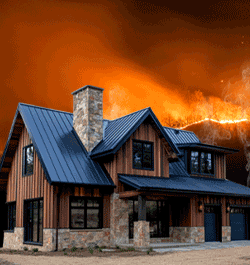


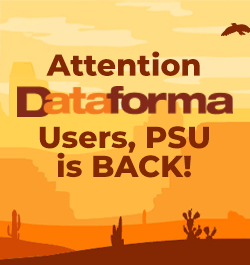








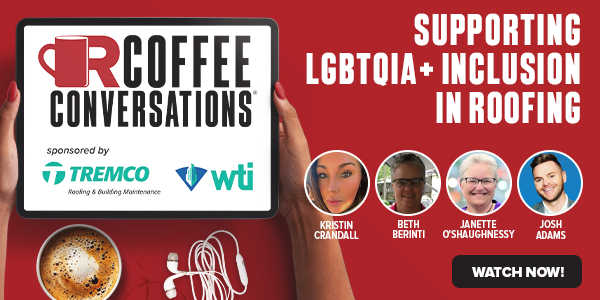
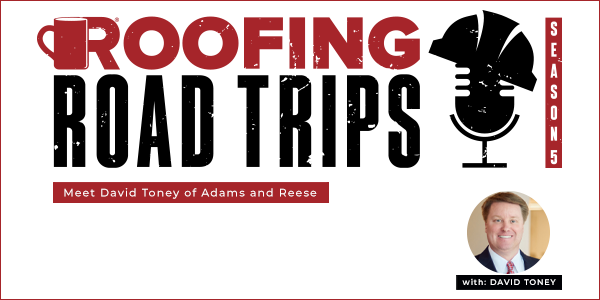
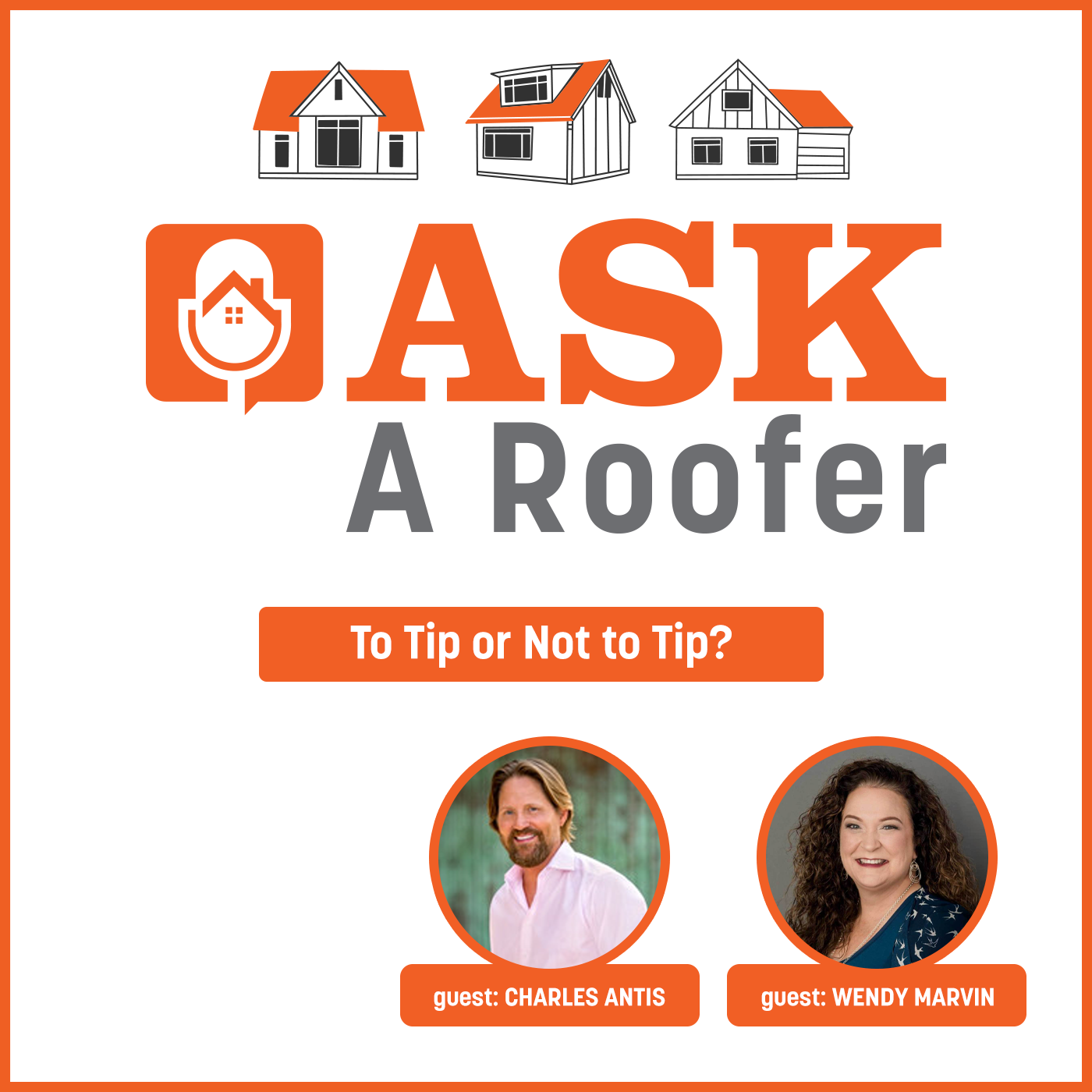
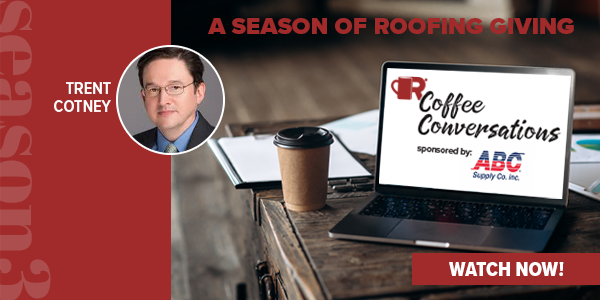

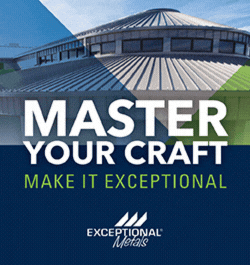
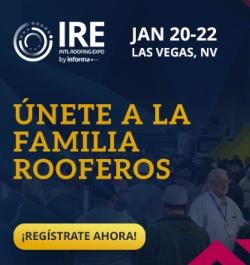

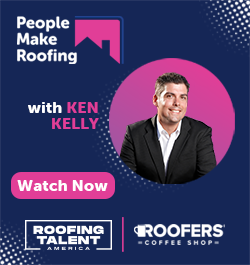

Comments
Leave a Reply
Have an account? Login to leave a comment!
Sign In